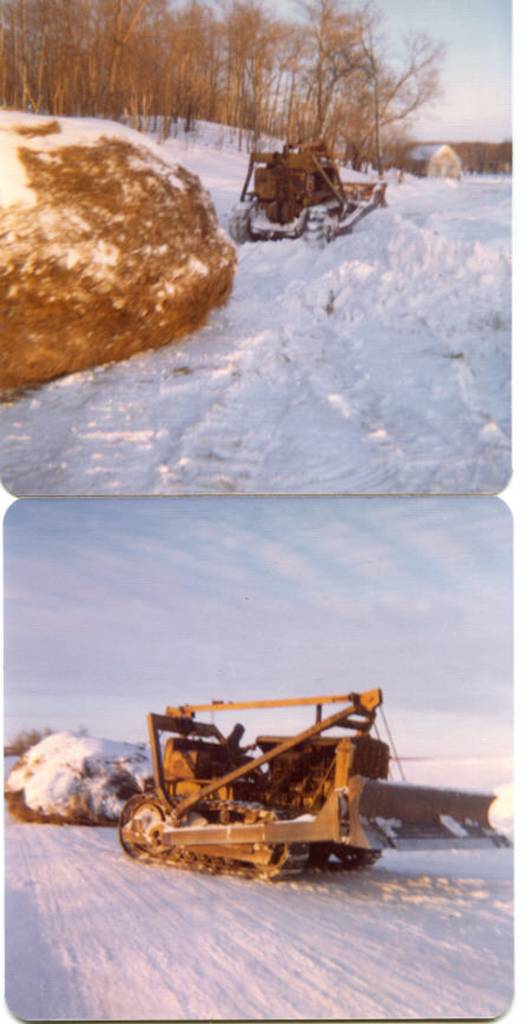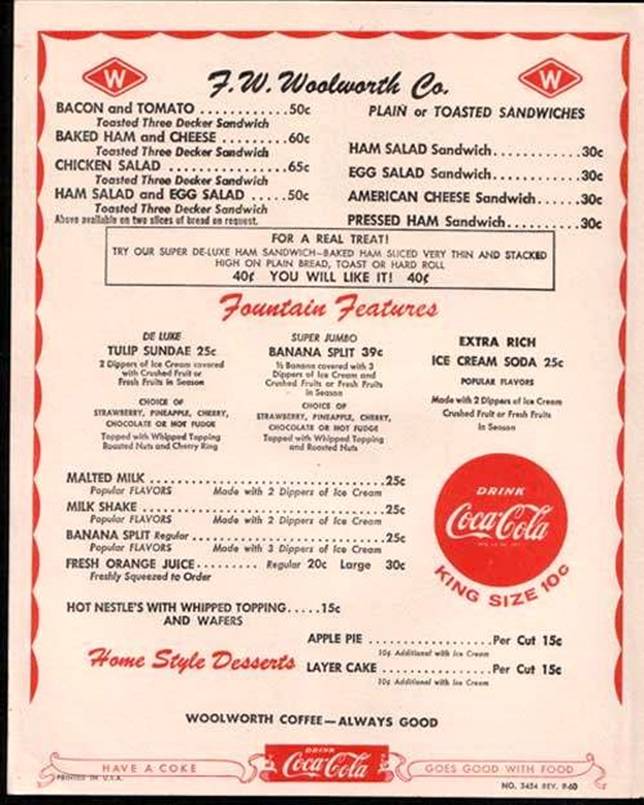Reply to yesterday’s message from Joe Johnson (77):
Gary,
Wasn’t this supposed to be #315?
Merry Christmas!!!
Joe
Joe, you are so right. I forgot to record #314 from the day before, so we now have two #314 messages. Today’s message is #315. Gary
From Blanche Wicks Schley (42):
Holiday greetings from snowy and chilly North Dakota! We are layering these days and still feel the blast of the minus zero temperatures and the wind chill. I am sure that you remember those days….probably glad that they are just memories and not the actual daily type weather. Most here do not mind the cold temperatures, but the wind is the worse and it is so cutting. After so many years we have sense enough to wear warm clothes. Of course, I did see a young man with shorts and flipflops at the store…today he would have to trade in his flipflops for boots!
I have enjoyed your daily e-mails. I do not know many of the people who write you, but many of the manes are familiar.
Hope that you have a blessed holiday.
Blanche Schley
From Jacqueline Hiatt Fix (79):
| Gary and All,
I would like to take this time to wish everyone a very Merry Christmas. In addition say thank you for the stories of the winters in North Dakota, you all tell them so well. They excite me as I fly into Minot on Tuesday for a week long of what I hope to be a memorable holiday. If there is anyone out there that would like to catch up please call Mom’s (Arla Hiatt) 228-5936. God Bless Jacqueline Fix (Hiatt) Jacqueline, I’ve pasted your mothers address below. Gary ARLA G HIATT1070 Highway 5 NE Bottineau, ND 58318-7104 |
From Ray Lilleby (57):
Ray & Kathy, I hope you don’t mind me posting this so folks, like Gary Metcalfe, also from the class of 57 and others, see your name and know that you are also recieving these messges. Gary
Hi Gary,
Ray wanted you to know that he’d like to attend the dinner if he’s in town. He surely thanks you for all the work you are doing on the reunion and keeping in touch with everyone. He’ll let you know closer to the time of the dinner if he can come.
Merry Christmas,
Ray and Kathy Lilleby
Ray, We’d dearly love to see you at the Dunseith reunion in Seattle this next summer. We’d love to see your sisters too.
WWII history from Bob Lykins (Mid 60′s DHS teacher):
Gary,
Happy holidays to all from the home of the Weihnachts Baum (Christmas Tree). I am currently in Wegscheid, Germany sitting in a house on the side of a small mountain overlooking a snow covered valley with a sleepy farming village below. That may sound very romantic but all I have done is shovel snow. I had forgotten how upset one can get when the snowplow throws everything back in to where one has shoveled. I am here for the holidays visiting my son.
Being an old history teacher and Social Studies Education Specialist I can respond to some of Dick and Gary’s comments regarding WWII. As you may recall, I have traveled extensively throughout the Pacific and Europe and I have visited many battlefields from a number of wars
Regarding battlefield junk. There is still a lot of it left over and much can still be found in the PI. I picked up more than a bit of it as I walked through Iwo Jima, Suri Ridge (Okinawa) Bastogne, Arhnem, The beaches of Normandy, Verdun, Waterloo. One of my favorite places and truely hallowed ground is Corregador at the mouth of Manila Bay. I spent two days there and even flew over it in a private plane. It remains much the same as the day the war ended. I had as my guide an old Filippino veteran of the battles for Bataan and Corregador. He was also a POW of the Japanese but was later released. He was an interesting fellow and I wish I had jotted down everything he had to say as he is gone now. He and I had some great adventures tromping over old battle sites where he had fought. We were in Malinta Tunnel (MacArther’s HQ) when an earthquake struck. Not the greatest place to be and I later read where the tunnel had been sealed to prevent people from going there because it was unstable. I believe Corregador is now a national park and people can take a ferry from Manila to the site. When I was there in the early 1970′s, the only way to get to the island was to rent a boat. As a result, little had been done to the island and it was still pristine. Most of the Islands, beginning with the Solomen campaign and moving on up to Iwo, still retain much of the refuse of war. Rusting hulks of ships and landing craft still litter the beaches of many of these Islands. It is just so difficult to get to them. Many of them, like Iwo Jima, remain uninhabited. Even in Europe the battlefields contain much. I was in a farmer’s field on a bluff overlooking Omaha Beach in France. I kicked at the dirt and hit something solid. Digging it up I found a piece of metal that I was later to determine as being a piece of shrapnel from a shell fired from a ship off shore. One must be careful, however, as there are still people dying from WWII ordinance left buried in the ground.
The 34th was an outstanding fighting organization that covered itself with glory. The 442nd Regimental Combat Team that Gary alluded to was and all Japanese-American outfit whose ranks were filled with many men recruited from the Japanese interrment camps as well as those of Japanese decent from Hawaii. Needless to say these guys felt they had something to prove. The 442nd RCT became the most highly decorated unit of WWII and suffered the highest rate of casualties of any unit. I met a number of 442nd vets at a seminar this past spring at Camp Mabury, Austin Texas. This is HQ for the 36th (Texas) Infantry Division. The seminar was held to commemorate the 442nd’s relief of a battalion of 36th ID soldiers who had become trapped in an area of the Vosage Mountains near Strasburg, France. They have gone down in legend as the “Lost Battalion” with movies and books written about this action. Not only did I get a chance to meet vets from the 442nd but also vets from the Lost Battalion and a pilot who flew a fighter plane in support of the ground action. Besides the humility of all of the vets, the thing that struck me was the size of the Japanese/American vets. None were over 5′ 4″ inches tall and all were very slender, looking in excellent shape for men in their 80s. An M1 rifle was taller than these men. The 442nd’s motto was “Go For Broke” and they sure did.
I have been very fortunate to visit such places where men fought and died while history was being made. My sister keeps after me to write down all that I experienced overseas. Everytime I begin to tell a tale my brother-in-law runs off to get his recorder. I guess that is what everyone should do if these tales of individual past experiences are to be preserved.
My best to all for a blessed Christmas and a great New Year!
Bob Lykins
Follow up message from Bob Lykins:
Gary,
A footnote about Dick’s comment on the Japanese Vet who held out for so long in the PI. It turns out he wasn’t even Japanese at all. He came from Taiwan and was actually Chinese. He was impressed into service by the Japanese Army. I was living in Japan when he was discovered and returned. He was a national sensation and much was seen of him on TV and in the newspapers. His was an interesting story of survival and deception. Even though not Japanese, why he held out for so long is a mystery to Western thinking and a credit to his Japanese commanders who trained him and to he himself for following his orders to the last.
Bob
Message & Pictures from Dick Johnson (68):
Gary and Friends,
Folks remembering sleighs and sleigh rides brings to mind hauling hay in
the winter with a sleigh mounted hay rack. Back in the days before
haystack movers, we had to go out to where the hay was stacked in the
field or slough and pitch on a load by hand with pitchforks. After
Grandpa ‘retired’ his team of Belgian horses, Barney and Bill, we used a
tractor with chains and pulled the sleigh out to the stacks. I remember
we had a short chain on the drawbar and a longer chain so we could
unhook and drive the tractor trough a snow drift and then hook the long
chain back to the sleigh and pull it through. My job was to hook and
unhook and then hook and unhook, over and over until we broke a trail.
We would pitch on a full rack and then try to hit the same track on the
way back, again hook and unhook. The one hay meadow we had was over a
mile away, cross country. It would sometimes take us most of the day to
get out and back with a load of hay, if the snow was deep. When we got
more cattle it was impossible to haul enough hay this way so we decided
to see if we could slide the stacks home behind the old Caterpillar. It
was already an antique in 1967 as it was a 1932 model. I pushed the
stack over to the trail, with the dozer, and then wrapped a cable around
the stack and took off for home. Once the stack started to slide we
hardly lost a fork full all the way home. I dragged about 60 stacks home
the first winter and it sure took the work out of the old process of
getting hay! The pictures were taken by my dad to show his buddies who
were ‘nay sayers’, figuring it wouldn’t work! It did!
Thanks Gary!
Dick
Dick, I remember well, dad hiring the county D-8 Cat, operated by Elwood Fauske, to drag in hay stacks from the fields. Norman Hiatt also moved a lot of hay stacks for the hills folks with his stack mover and his two international 707 farmal tractors. In the winter months he’d often times get stuck between two hills. It would take both his tractors and often times some of the neighbors tractors to assist getting those big stacks up over some of those hills. I remember that 707 international tractor looking pretty small hitched to the front of that big stack mover. It was the biggest tractor of times though. Years later, I also remember Elwood Fauske toeing his stack mover behind his 3/4 ton 4WD ford pickup. If I remember correctly, I think I saw him towing that stack mover past our place behind his pickup with a stack or two of hay. I think he was moving stacks from the prairie. I think from his sister Lydia LaCroix place. I remember he had a hearty ford pickup. Gary
From Mel Kuhn (70):
Gary,
I thought this might interest our group.
Mel
If any of you have doubt about what we as kids paid for a coke and a sandwich at Woolworths (How many don’t even know what Woolworth’s was?) in the 1950′s, here’s proof of the era we lived in……..


